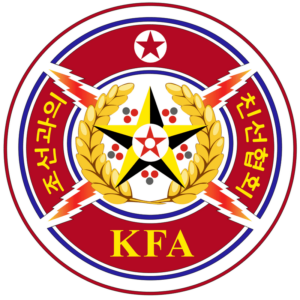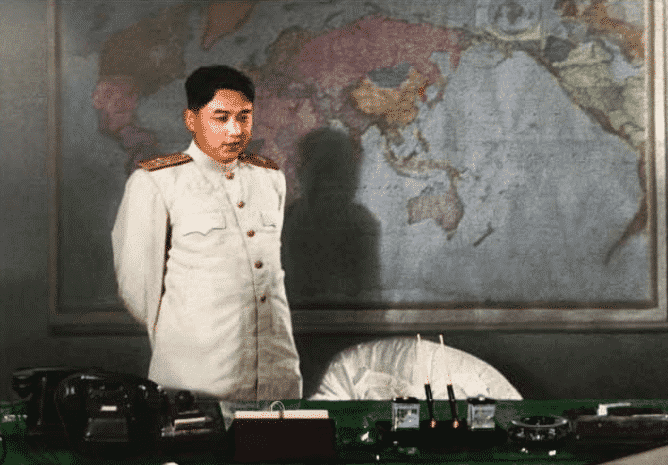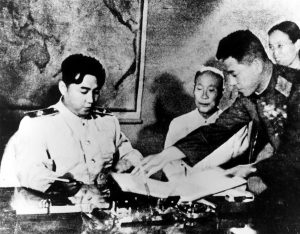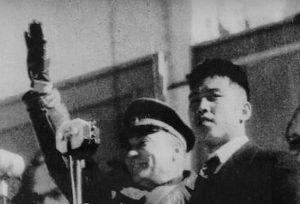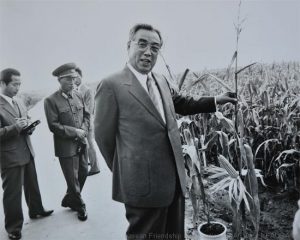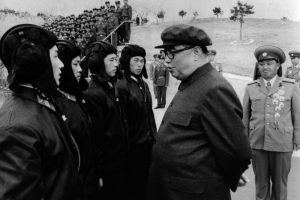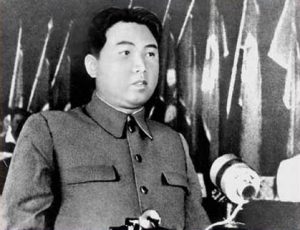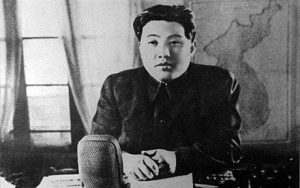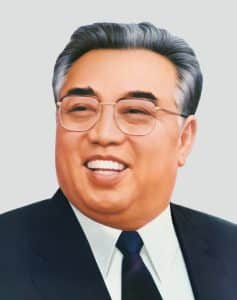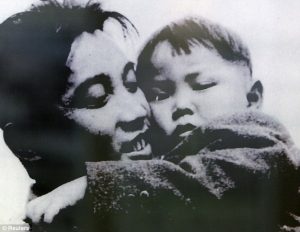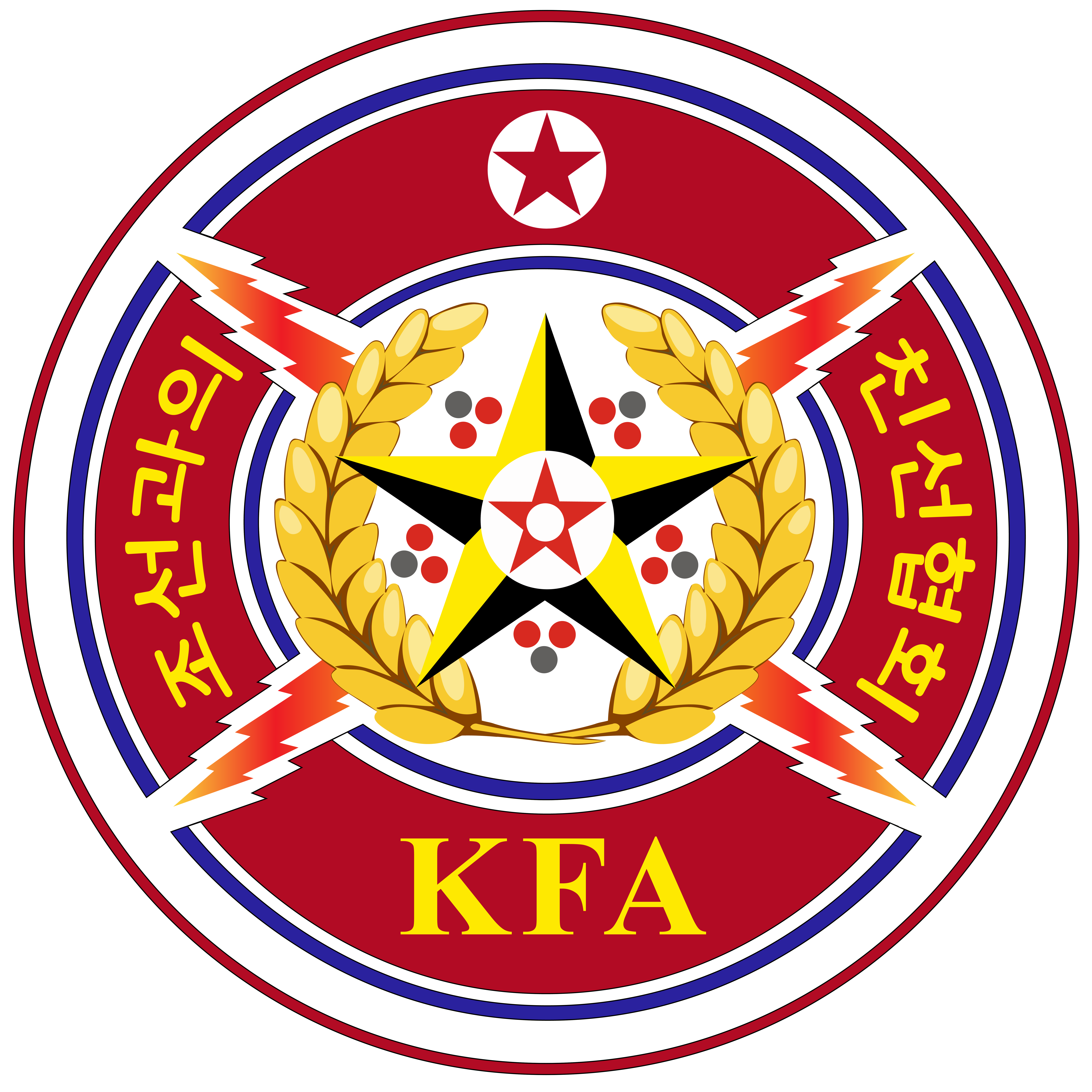Kim Il Sung
KIM IL SUNG: Ever-victorious, Iron-willed Commander
Greeting the V-day, the Korean army and people are looking back upon the immortal exploits of President Kim Il Sung, an ever-victorious, iron-willed brilliant commander who led to victory the Fatherland Liberation War (June 25, 1950-July 27, 1953).
The war unleashed by the US imperialists was a hard-fought struggle for the DPRK: Korea was liberated from the Japanese military rule five years ago; the Korean People’s Army lacked military hardware as it was developed into a regular armed force two years ago; and the DPRK was economically weak. On the contrary, the US imperialist aggressors had a history of aggression of more than a hundred years and styled itself the “strongest” in the world. They mobilized for the Korean war huge forces of their own army and their 15 satellite countries, the south Korean puppet army and the Japanese militarists.
The revolutionary and progressive peoples around the world were deeply worried about the destiny of the Korean people, while observing the Korean war with keen interest.
However, the Korean army and people won victory in the war under the outstanding and seasoned leadership of Kim Il Sung who shouldered the destiny of his country and people.
Proceeding from the principle that the soldier masses and the popular masses are the masters in conducting a war, he advanced such scientific and original military ideas as turning the war into an all-people war, frustrating the enemy’s numerical and technical superiority by means of politico-ideological superiority and strategic and tactical superiority and meeting the needs for war materiel independently, and vigorously inspired the army and people to the struggle for annihilating the enemies.
He led all operations and battles to victory with his unequalled art of military leadership and original military tactics, taking the initiative throughout the war.
He created many adroit operational plans and military tactics, including prompt counterattack to beat back the enemy’s surprise invasion, continuous strikes, plans to liberate Seoul and Taejon, formation of a second front in the enemy’s rear, battles of large encirclement by concerted operations between the main front and the second front, proper combination of regular-army warfare with guerrilla warfare, positional defence warfare relying on tunnels, raids, mountain and night warfare, sniper’s movement, aircraft-hunting teams and tank-hunting teams.
Even in the fierce flames of the war he wisely led the efforts to strengthen the Workers’ Party of Korea, the general staff of the Korean revolution and guide of all its victories, both organizationally and ideologically, augment its fighting efficiency and develop the KPA into a powerful force.
Meanwhile, he made sure that great efforts were directed to consolidating the rear so as to meet the demands for manpower and war materiel.
He united service personnel and people behind the Party, thus strengthening in every way the political and military positions of the country.
He visited the soldiers fighting on heights in the teeth of heavy bombings by the enemy planes and the people in the rear working day and night to give material assistance to the front, and bestowed warm affection and trust on them. This constituted a powerful source which enabled the Korean army and people to give fullest play to mass heroism and the spirit of self-sacrifice in the fight against the aggressors.
In the three years of the war Kim Il Sung made forced marches totalling over 20 480 km to inspect more than 1 056 units, including the Front Command situated in Seoul, Suanbo and other areas, to strengthen the Party, the army and the people’s government and consolidate the rear for victory in the war.
It is not accidental that Mark Clark, commander of the UN forces, who was compelled to sign an armistice agreement on July 27, 1953, admitted that the victory of the north Korean army in the war owes to the excellent art of command of General Kim Il Sung.
The Presidium of the Supreme People’s Assembly of the DPRK awarded Kim Il Sung the title of Marshal of the DPRK on February 7, 1953 and the title of Hero of the DPRK on July 28, 1953 for the exploits he had performed for victory in the war, making the US imperialists suffer defeat for the first time in history.
Kim Il Sung’s exploits will shine for ever in history.
